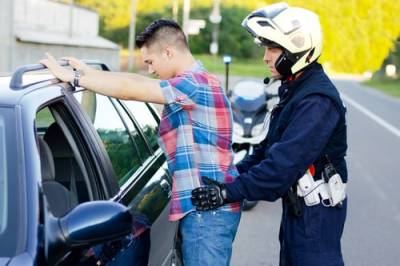What is an Illegal Search and Seizure?
 As an American, we have certain rights that are protected by the Constitution. Among these crucial rights is the right to be free from unreasonable searches and seizures of personal property. In other words, government officials, including police, must have a valid reason to search an individual’s property. However, what qualifies as an "unreasonable search" is not always easy to ascertain.
As an American, we have certain rights that are protected by the Constitution. Among these crucial rights is the right to be free from unreasonable searches and seizures of personal property. In other words, government officials, including police, must have a valid reason to search an individual’s property. However, what qualifies as an "unreasonable search" is not always easy to ascertain.
When Can Police Search My Home?
Police officers are limited in their ability to search a person’s house, apartment, mobile home, or other residence. Most of the time, police officers must get a search warrant before they can search a home. A search warrant will list the parameters of the search including the areas police are allowed to search and how long they have to complete the search.
There are exemptions to the search warrant requirement. Police may enter a person’s home and search for illegal materials or evidence of a crime without a search warrant under the following circumstances:
-
Permission – You have a right to refuse a police search of your home. If you or another resident gives police permission to search the premises, they do not need a search warrant.
-
Imminent danger or exigent circumstances– Police may also search a home if there is probable cause to believe that someone in the home is in danger, evidence of a crime is actively being destroyed, or a criminal suspect is trying to escape.
-
Illicit items in plain view – Police have the authority to seize illegal materials that are in plain view. For example, if you open the door for police and they can see drugs inside the home, they may seize the drugs and use them as evidence in future legal proceedings.
When Can Police Search My Car?
Motor vehicles fall under the "automobile exemption" when it comes to searches and seizures. This means that officers do not usually need a search warrant to search a vehicle. Police can search your car if you consent to the search, are arrested during a traffic stop, or if illegal items are in plain view from outside the vehicle. They may also search any vehicle that is impounded.
When Can Police Search Me?
Drugs, drug paraphernalia, firearms, and other evidence of criminal activity is often discovered on an individual. Police can search a person and their clothing if that person is being arrested. For example, if you are stopped for reckless driving, police may pat you down or empty your pockets. Officers may also search an individual if they suspect that the individual is hiding a weapon in their clothes or on their body.
Contact an Elgin Criminal Defense Lawyer
If you or a loved one were charged with a criminal offense in connection with a police search, contact the The Law Office of Brian J. Mirandola for help. If evidence was obtained by police during an illegal search and seizure, the evidence may be suppressed during criminal proceedings. Call our skilled Kane County criminal defense lawyers at 847-488-0889 today for a free, confidential case assessment.
Source:
https://www.constituteproject.org/constitution/United_States_of_America_1992








